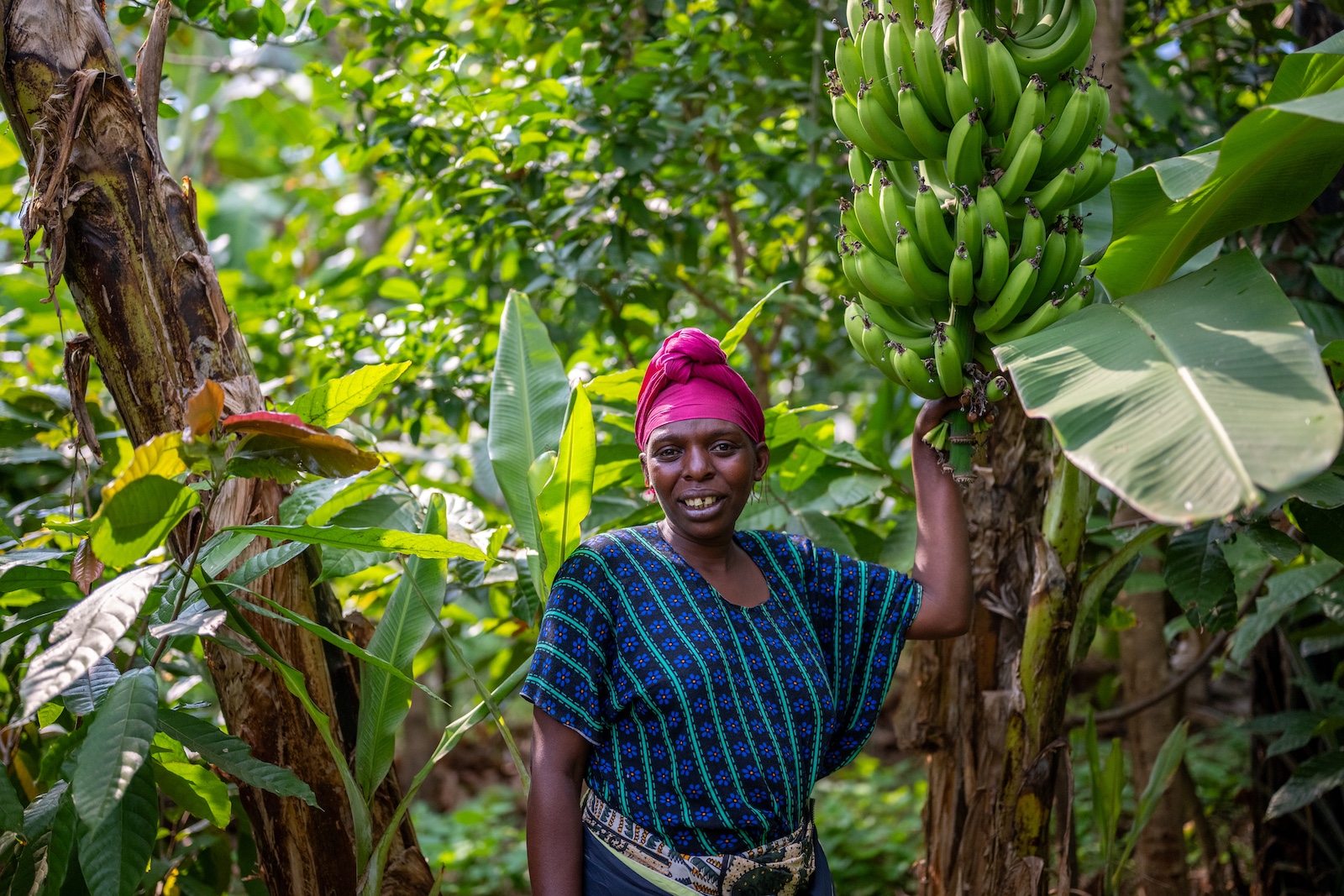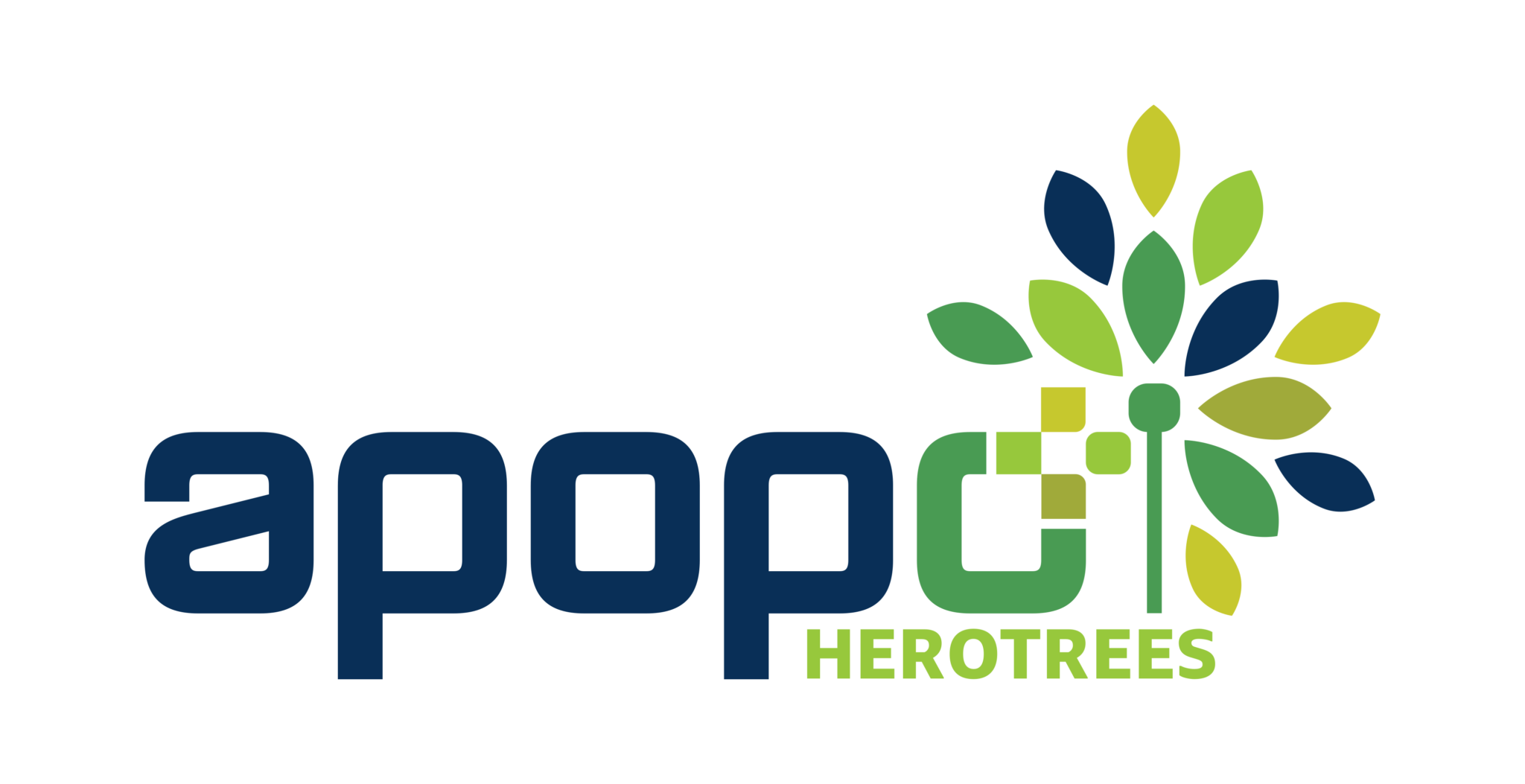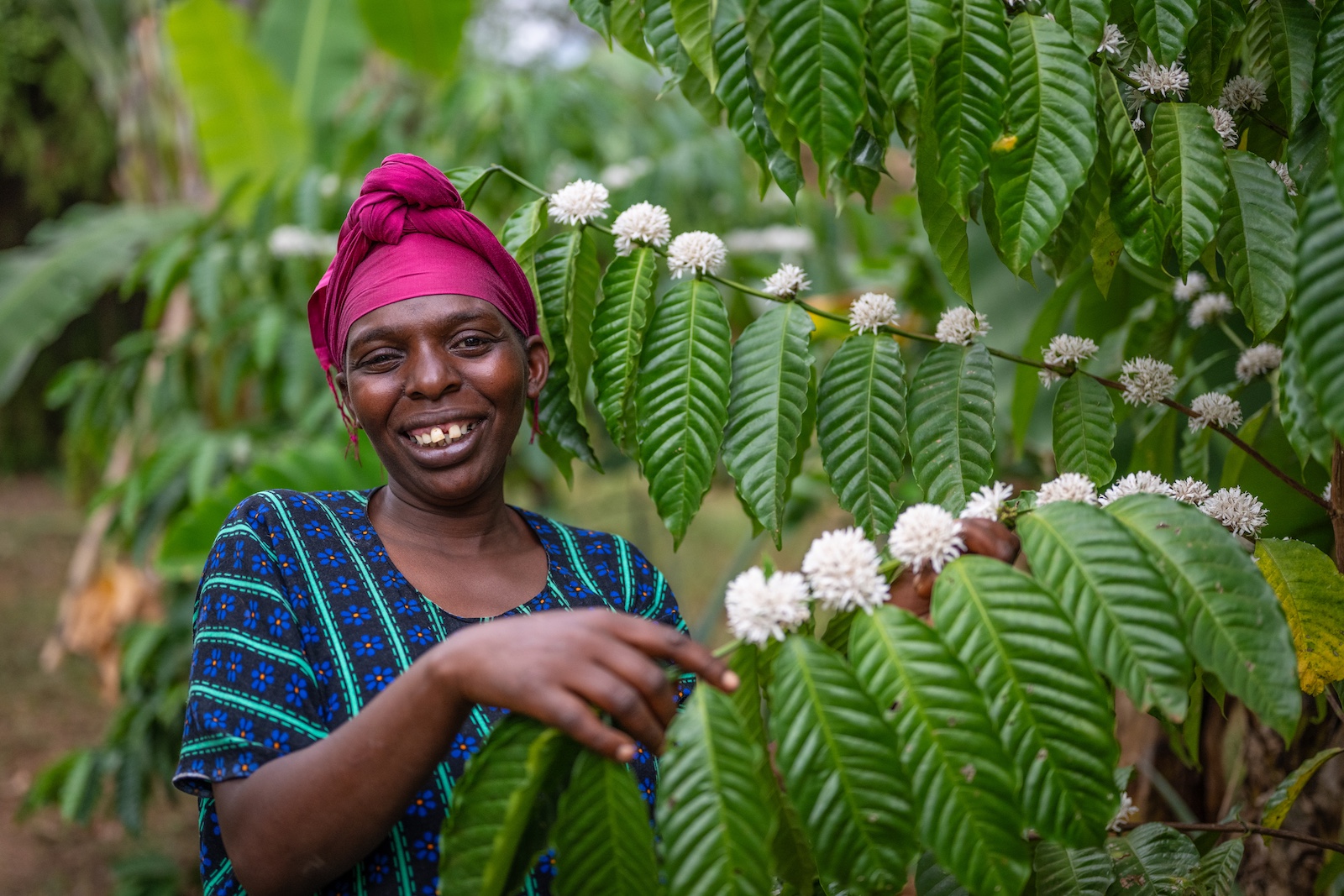Food Forest Farming with HeroTREEs
When Devota heard about food forest farming training through APOPO’s HeroTREEs program, she and other farmers in Ndegutu village, Tanzania, decided to take part. With one acre of land to support her family, she hoped to learn better ways to manage her crops and soil.
In her own words, Devota explains what she learned and how she is applying it to her farm.
“My name is Devota, and I come from Ndegutu Village, Mgeta. I have four children. My first child is fifteen and finished Standard Seven last year. The second is twelve and in Standard Six. The third is nine and in Standard Three. The youngest is five and in kindergarten.
I work together with my husband. We are farmers and we farm about one acre of land. Before the training, we used to grow beans, peas, and maize, but we didn’t follow any specific method. We planted and harvested, and then the land would stay empty until the next season. We also used to throw away crop residues without knowing they could help the soil.
This year we received information about food forest farming. We joined the training, first in the classroom, then through practical sessions. After that, we went to the APOPO farmer field school, where we continued learning. I learned how to manage the farm better, including how to prepare the land, use manure, apply mulch, and plant in a more organized way. In the past, we used chemical fertilizers and didn’t know how to make ridges or prevent erosion. Now I mulch and take care of the soil as we were taught. There are some challenges. When it rains heavily, water can wash away the crops. But crops like fruit trees stay. Also, in some parts of the land where there are stones, the ridges don’t hold well.
Since learning about food forest farming, I’ve planted banana, avocado, cocoa, coffee, timber trees, and spices like cloves and cinnamon. I also grow peas, beans, tomatoes, and Chinese cabbage.
So far, the crops I like most are avocado, coffee, and timber trees, because they have better market value. For example, avocados are selling well. I hope to continue with these crops for income. People also need timber, so I think when the trees mature I can sell that too.

My main goal is to feed my family, and also to earn some income to support other needs.
Others in my community who joined the training are also preparing their farms. They liked how the training was delivered and wanted to learn more. Some people pass by my farm and ask about the method because they see different crops growing on a small piece of land. I tell them about the training and guide them with what I know. They are interested and want to form more groups for learning.
I am grateful to APOPO for bringing this new way of farming to us and training us to do more with the little we have. Before, we were farming without knowing how much soil we were losing. Now we are keeping moisture in the soil, and some of the trees help improve the quality of the soil as well. This in turn yields better crops.
We also ask APOPO to expand this training to other areas in this region. Many people still want to learn. We are ready to keep sharing what we’ve learned.”
Support the HeroTREEs project and help protect the environment and safeguard the future of local communities?


